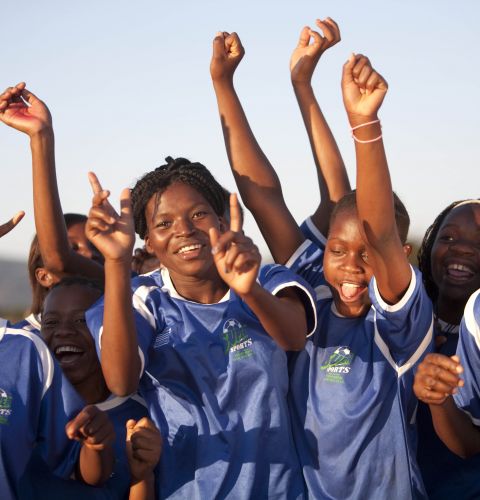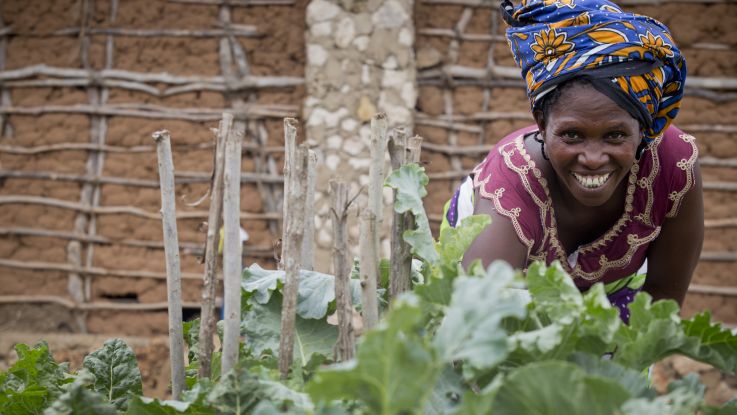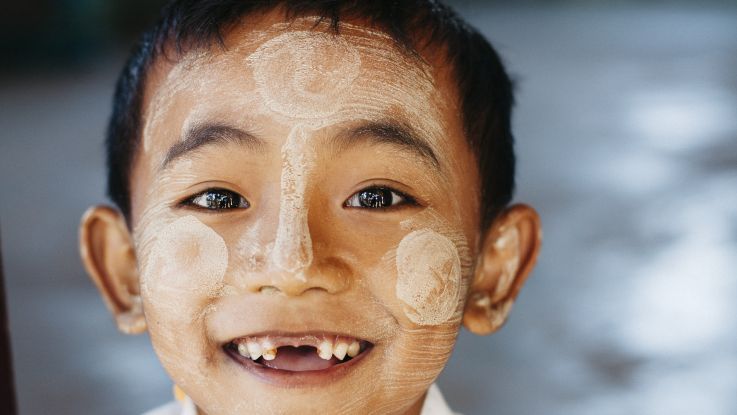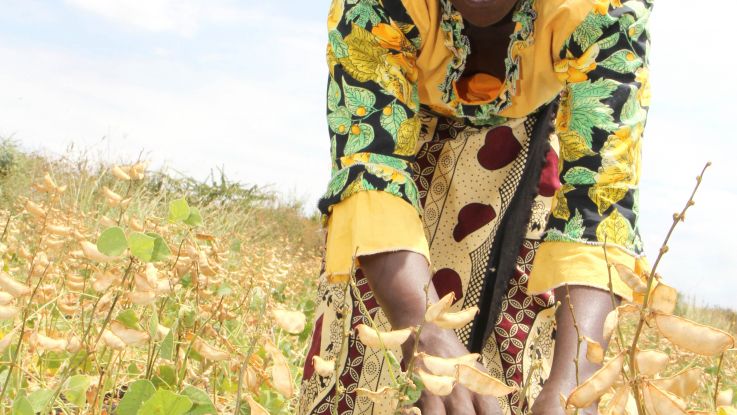South Africa
Why we work in South Africa
South Africa is often seen as the most developed country in Africa, with advanced education systems and industries.
But it is also one of the most unequal, with very high unemployment among young black South Africans, and 14% of people living below the poverty line.
South Africa has the second highest rate of AIDS deaths in the world. Teenage girls and young women are most at risk of HIV infection, which is due in part to the high levels of sexual violence they face.
Poverty is a huge barrier to education for many children in South Africa, particularly girls, who often need to support their families to earn a living instead of going to school. Teenage pregnancy is a significant problem for young girls - one in three girls fall pregnant before they are 20.
What we do in South Africa
Supporting people affected by HIV/AIDS
We’re tackling HIV/AIDS in South Africa by setting up information clubs in schools for children to learn about HIV prevention. We also work with women’s organisations across South Africa, to build support networks for those affected by the virus.
Teenage girls and young women are most at risk of infection, partly because of the high level of sexual violence that they face. Our Safe Cities for Women programme empowers women to speak out about sexual harassment and abuse, and to campaign for safer living conditions.
Promoting food security and education
To improve food security in areas that suffer frequent drought, we train farmers how to conserve water and soil, to develop lasting skills within the community. We provide the most vulnerable families with seeds, fertiliser and tools so that they can grow enough food throughout the year.
We support thousands of pupils with uniforms and stationery packs. Girls who fall pregnant as teenagers often struggle to finish their education, so we campaign to ensure they can stay in school.
We set up girls' clubs in schools across the country where girls can support each other and discuss issues that are affect their daily lives. We also provide funding for new classrooms and toilets, and equip pre-schools with playground equipment.
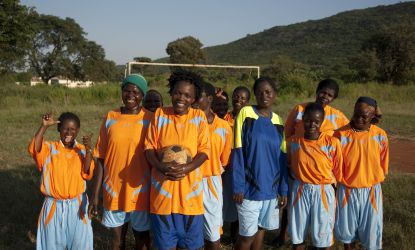
Elekanyani Munyai with her football team
ActionAid
Women helping women
After participating in a women’s support group, Elekanyani from Tshiombo village trained as a group facilitator and now counsels women about HIV/AIDS and violence. With ActionAid’s support, the group meets four days a week, and they have started playing football together in a local league.
Elekanyani says: “We discuss our issues and we encourage each other to face the problem. When we finish, we play football. I was a woman who stayed at home all day, doing nothing, only cooking and washing. But now, I work with people and they trust me and they understand who I am. I feel proud of ActionAid.”
Find out more about our work on women's rightsFootnotes
- 1 https://www.unwomen.org/en/news-stories/feature-story/2023/12/south-african-womens-group-trains-police-to-respond-to-gender-based-violence
- 2 https://www.parliament.gov.za/storage/app/media/1_Stock/Events_Institutional/2020/womens_charter_2020/docs/30-07-2020/A_Statistical_Overview_R_Maluleke.pdf
- 3 https://southafrica.un.org/sites/default/files/2022-02/UN%20South%20Africa%20-%20ABRIDGED%20FINAL%20CCA%202019-2020%20%281%29.pdf#:~:text=PROGRESS%20OF%20THE%20SDGS&text=An%20estimated%2030.6%20million%20(55.5,43.6%25%20and%20women%2057.2%25.
Page updated 29 January 2025
